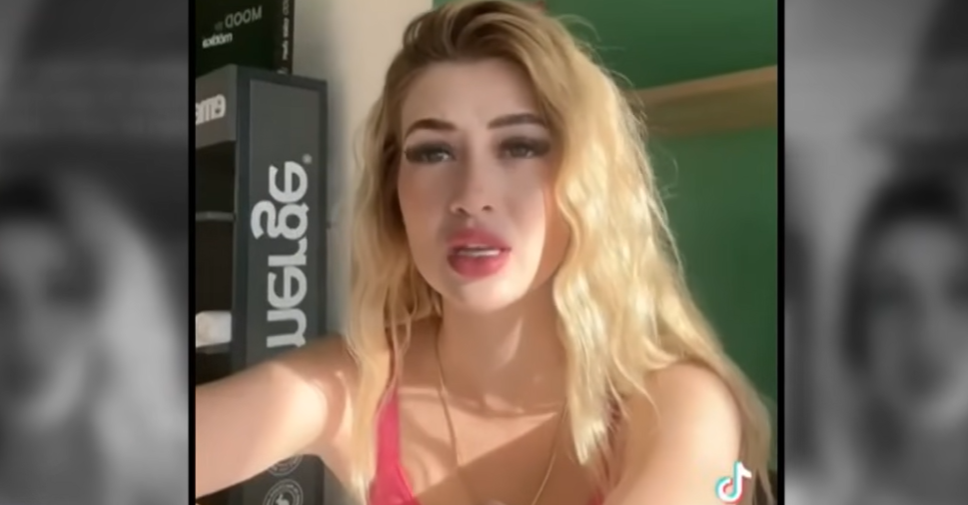The sorrow over Valeria Márquez’s family has gained a poignancy in recent days that extends well beyond Jalisco’s boundaries. Her parents have become reluctant symbols of a pain remarkably similar to that experienced by many families dealing with femicide throughout Mexico, although being purposefully kept anonymous to maintain some degree of privacy. The murder of their daughter, which was shown live on TikTok, felt more like a rupture than a personal loss to a country that was grappling with gendered violence.
According to reports, Valeria’s family had been incredibly helpful during her ascent to online celebrity. In addition to her appeal, a system of trust and support from her family helped her make the shift from beauty queen to influencer. She had previously referred to her mother as “my anchor” and her father as “my first manager” in a media interview from 2023; these expressions now seem burdened with subdued sadness. Those closest to her knew her best not as a brand but as their daughter, their joy, and their center, notwithstanding her radiant public persona.
| Full Name | Valeria Márquez |
|---|---|
| Date of Birth | April 17, 2002 |
| Age at Death | 23 |
| Place of Death | Zapopan, Jalisco, Mexico |
| Profession | Beauty Influencer, Business Owner |
| Major Recognition | Miss Rostro 2021 Winner |
| Social Media Reach | Instagram (223K+ followers), TikTok (100K+) |
| Parents | Names withheld for privacy |
| Cause of Death | Gunshot wounds during TikTok livestream |
| Funeral Organized By | Immediate family in Zapopan |
| Source Reference | bbc.co.uk/news/articles/cly3nw938deo |
Her parents were reportedly nearby on the day of the incident. Valeria was broadcasting live from her Zapopan salon, Blossom The Beauty Lounge, which she had founded. She can be seen nervously remarking about a courier whose face was hidden in the video, which has since been taken down from most sites at the family’s request. A shot rang out a few seconds later. She stopped talking. The nightmare started for her family.

This was more than just an act of violence for the Márquez family; it was the public disintegration of their future. The location, a high-end salon with mirrors and light circles, was especially symbolic. She had created it with hard work, perseverance, and technological know-how. It was much harder to understand the grief when her life ended so suddenly in the same place she had created. Additionally, it has been emotionally draining and extremely offensive for her parents to see the media cycle continuously reenact those final moments.
Following a prompt investigation, the prosecutor’s office classified the incident as femicide. At least two guys arrived on motorcycles, according to officials, though the motivation has not yet been verified. She was questioned if she was Valeria by one. He drew a gun, fired twice, and ran away when she answered yes. No arrests have been made despite authorities continuing to examine CCTV footage and social media traces, which is especially upsetting for a family looking for closure.
Jalisco has become more and more involved in violence related to cartels within the last ten years. However, the story has veered away from organized crime due to the potential for a personal motive—a jealous ex, as implied by text conversations later discovered. Whatever the motivation, the effect is still remarkably intimate. Days after the incident, Valeria’s mother reportedly passed out while carrying her daughter’s picture at her funeral. Her father stood in silence, his shoulders sunk under the weight of loss, his body clearly broken.
Although they haven’t spoken in public, their presence—photographed and subtly shared online—has conveyed a lot. More than one tragedy was mirrored in the anguish on their faces. It represented the suffering caused by a system that has consistently let women down. Families that never thought they would become statistics are devastated by femicide, which is currently one of the most urgent human rights issues in Latin America.
According to the UN, around 11 women are assassinated in Mexico every day. Once a background, the figures are now a focal point for Valeria’s parents. Their daughter was more than simply a former pageant queen and influencer. She was their kid. Their pride. She witnessed a moment of ruthless spectacle.
The way they have chosen to grieve is quite powerful. They have focused on Valeria’s memory itself instead than doing interviews or entering the public eye. According to a close family friend, her parents are now working with women’s rights groups to promote more online safety and laws that try to stop livestreamed abuse. By doing this, they have turned hopelessness into a very creative kind of activism that is silent but powerful.
They have gained voices in a movement they never requested to join, even in the absence of public declarations. Her parents have been in the forefront of candlelight vigils in Zapopan, their hands clasped together, their faces illuminated with grief and determination. They don’t have catchphrases. Silence is carried by them. a quiet that begs for clarification.
According to reports, the family is also attempting to get the video of Valeria’s last moments taken down completely from all social media sites through strategic alliances with advocacy organizations. Even though some websites have complied, the video is still making the rounds on less trustworthy websites. Their capacity to grieve in privacy has been severely hampered by their ongoing public prominence.
The efforts of Valeria’s parents are a monument to legacy in the backdrop of her colorful life. She was more than just a person who went viral. She was a woman who encouraged others to aspire to construct their own structures. Her parents are currently working to protect that essence by taking back their daughter’s tale from the viral videos and algorithms that keep erasing her humanity.
Naturally, their circumstances are rife with unfairness. No suspect has been named over a week after her death. Although the inquiry is still ongoing, according to the prosecutor’s office in Jalisco, there is still very little faith in law enforcement. In a place where it is estimated that more than 90% of crimes go uninvestigated, their call for justice is both deeply personal and widely symbolic.
Nevertheless, they continue. Not because they think the system is going to work. However, they feel that their daughter should be remembered for her life rather than her death.
Their adventure is far from ended. Even though they requested seclusion, their sorrow has already been made public—inadvertently forceful. Signs that read, “Valeria is all of us,” have surfaced in Mexican cities during recent marches. Even though her parents didn’t speak into microphones, their grief has been heard more loudly than any words could.
